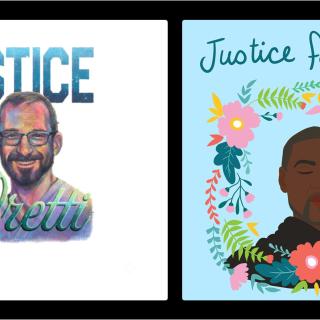Advertisement
The Central Ohio Reuse Coalition (CORC) will launch a first-of-its-kind circular economy coffee shop reuse program in Ohio as an initial step towards reducing the approximately half-million single use coffee cups thrown away in Central Ohio daily. CORC is comprised of nonprofits, local sustainability groups, green businesses, faith-based organizations and committed individuals who live and work in Central Ohio. CORC is also a chapter of the Austin-based Plastic Reduction Project.
With grant funding from the City of Columbus and Upstream Solutions, and in partnership with S’wonderful Times Café in Bexley and Community Grounds Coffee Shop in Columbus, CORC is launching a reuse solution that keeps cups circulating in an open-loop system.
Open loop means that customers are responsible for returning the cups to the shops, where they are sanitized and placed back in circulation for the next customer. In a reuse program, customers check out a reusable cup much like borrowing a book from a library. When they return for their next order, customers check in the dirty cup and check out a clean cup. The coffee shop washes the dirty cups as they would for their dine-in orders.
Participation and tracking are facilitated by the stainless-steel cup provider, Okapi Reusables, whose platform manages the checking out and returning of the cups.
CORC’s reuse program has two goals: to provide a healthier and more sustainable model for take-out beverages than disposable cups and begin to make a dent at reducing the more than half-million cups that are thrown away in Central Ohio each day.
The Columbus City Council voted earlier this year to fund a yearlong pilot program for coffee shops in the city, making it a cost-neutral endeavour for early adopters. “The data we collect from the pilot will help CORC work out the kinks in the program and better understand the preferences of both coffee shop owners and customers,” reports Dan Barash, CORC’s Co-Director. “This information is crucial as we bring on more shops.”
CORC’s long-term goal is to create a network of cafes using Okapi cups powered by the Okapi platform. With a network of cafes, coffee and tea drinkers can buy a hot beverage in one shop and, when visiting another participating shop in the network, return their dirty cups and get a clean cup with their next order.
While accepted as commonplace and even desired because of its convenience, disposable cups are part of a linear “take-make-waste” model where the financial and energy resources invested in its creation are literally thrown away after a single use.
While disposable cups have a much lower price-point per unit than reusables, the disposable cup model imposes economic and environmental costs to all Central Ohio residents, whether they order takeout coffee or not. Upstream, there are environmental costs associated with the production and transportation of disposable costs. After a single use, disposable cups require local businesses and municipalities to pay for the collection and disposal of these items (costs passed down to the public in the form of taxes and built-in to the price of your takeout order). Downstream, the pubic assumes the cost when these disposables are dumped into local landfills. Finally, the public suffers from the downstream eyesore of litter in our streets, parks, and waterways.
Through continual reuse of the same cup, the cost per unit decreases so that once past the break-even point (approximately 80-120 uses, depending on the material used for the cup), the cost per-cup continues to decrease until eventually becomes much lower than the cost of a single disposable cup.
Reuse is a superior model in that, by design, diverts from the local waste-stream and keeps local dollars in the community. Seen another way, why would we want to send money to a large (usually) overseas concern for a product that is used only once when we can keep the money in the Central Ohio economy by paying local workers to wash the dirty cups?
“Most coffee drinkers have become accustomed to the convenience of disposable cups, but we believe that sustainable options can be just as convenient,” Douglas Calem, Founder and Co-Director of CORC. “By introducing reusable cups in local cafes for to-go orders, we’re giving our community a way to support environmental health in their daily routines.”




